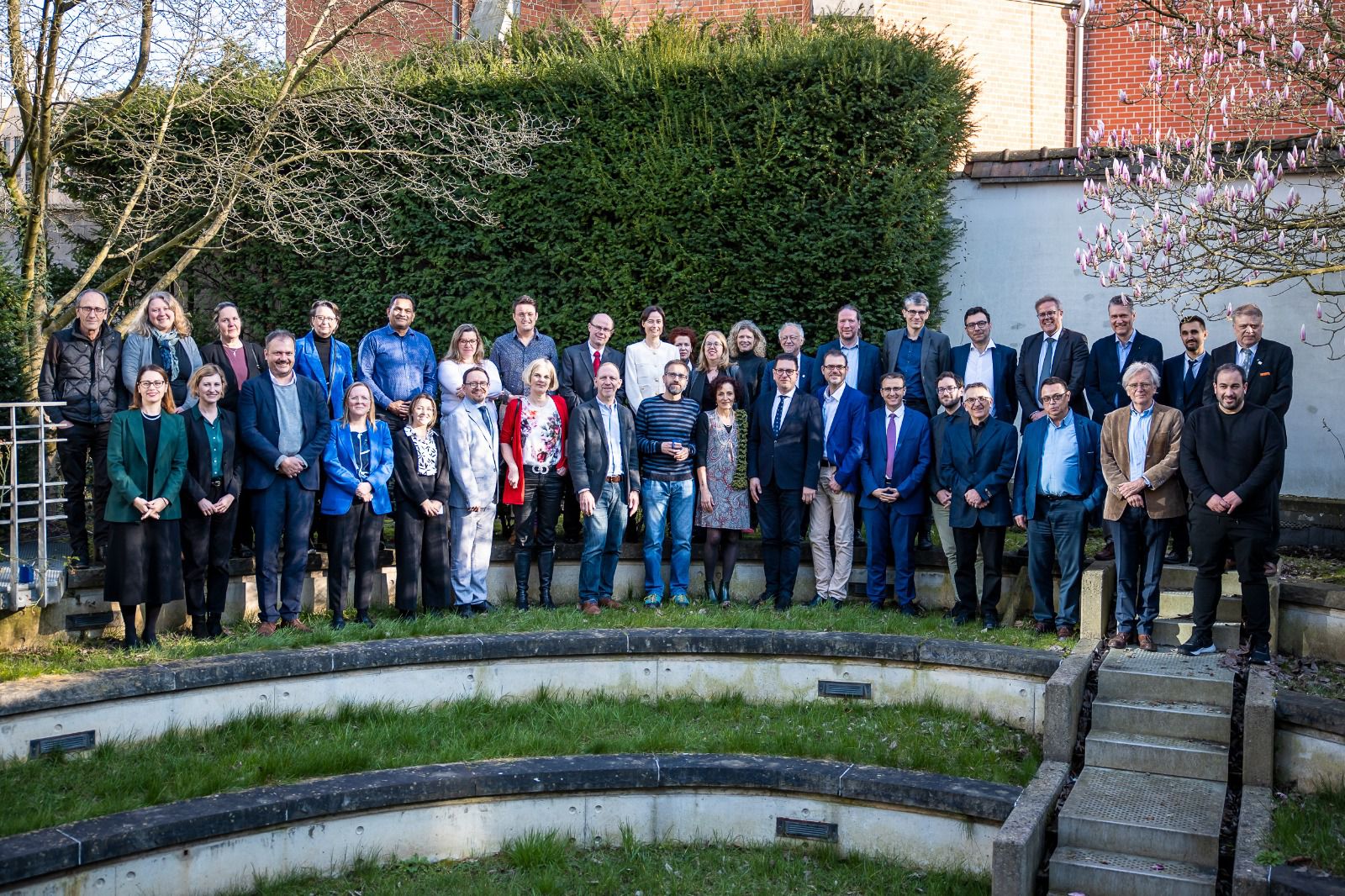
This is the beginning: minority experts from all over Europe answer FUEN's call
06.03.2024What could be the new norms in the field of minority protection? Which new standards and instruments are needed for arriving at a better protection regime for minorities in Europe? 40 researchers and members of the academia met in Brussels on 4-5 March 2024 at the ‘Ewald Ammende’ International Expert Conference organised by FUEN to assess the current state of minority protection in Europe and discuss these issues in hopes that the current negative trends could be reversed with adequate answers. This was the first time so many experts came together to find ways forward in minority protection.
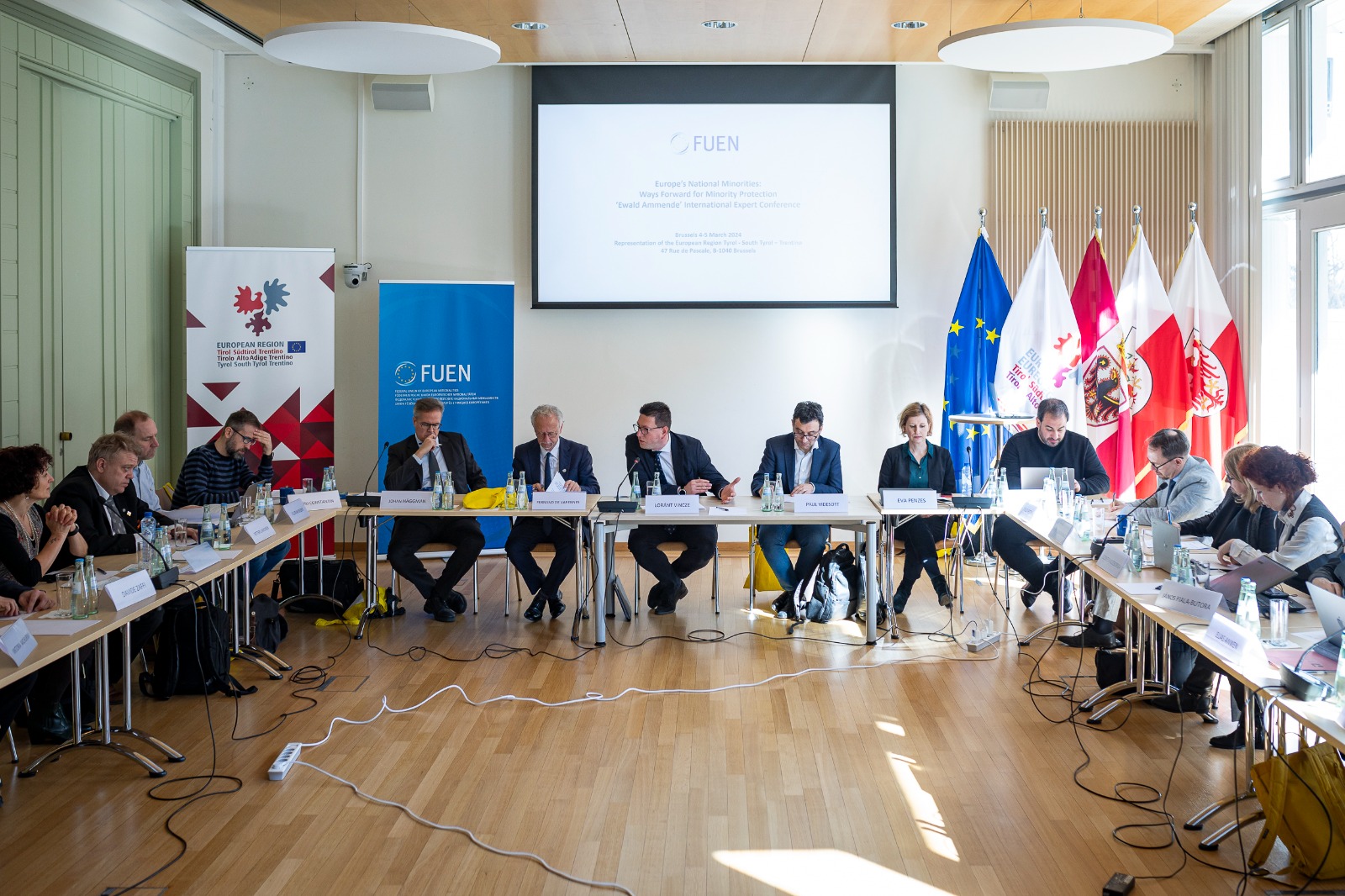
The roundtable format chosen for the event, which allowed all participants to express their thoughts and share their ideas, was welcomed by all participants and provided a good working method towards identifying solutions.
FUEN President Loránt Vincze explained that the Minority SafePack Initiative managed to give the issue of minority protection visibility and put it on the European agenda, but regardless of the outcome of the ongoing legal battle against the European Comission’s refusal to initiate legislation based on our proposals, new paths toward a European legal framework for the protection and promotion of minorities need to be identified.
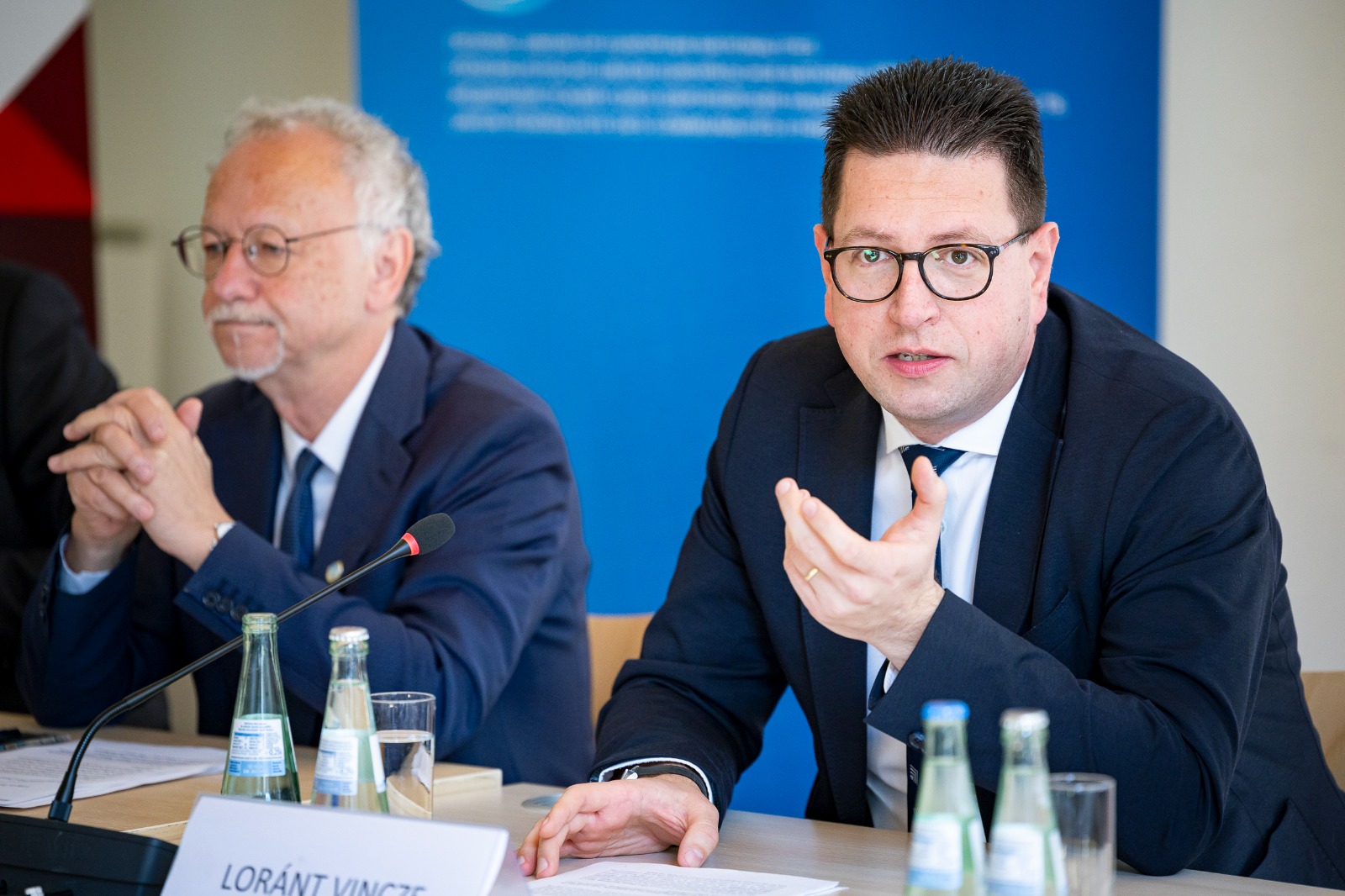
The European Court of Human Rights’ conclusion from 2023 that education in a minority language – and the content of the Framework Convention on the Protection of National Minorities – are not part of ‘a European consensus’ was a much discussed recent negative development, also highlighted by former UN Special Rapporteur on Minority Issues Fernand de Varennes.
The lack of trustworthy data on minorities is also a challenge, as most European countries do not collect data on nationality/ethnicity and/or mother language at the national census. As more and more countries rely in the census on databases not containing any data on nationality or language instead of direct interaction with the citizens, there is a real risk of minorities becoming invisible, as Paul Videsott, professor at the Free University of Bolzano pointed out. Not having a standard definition of minorities or language groups also causes problems: from a legal standpoint, you cannot protect something you cannot define, as one of the participants put it.
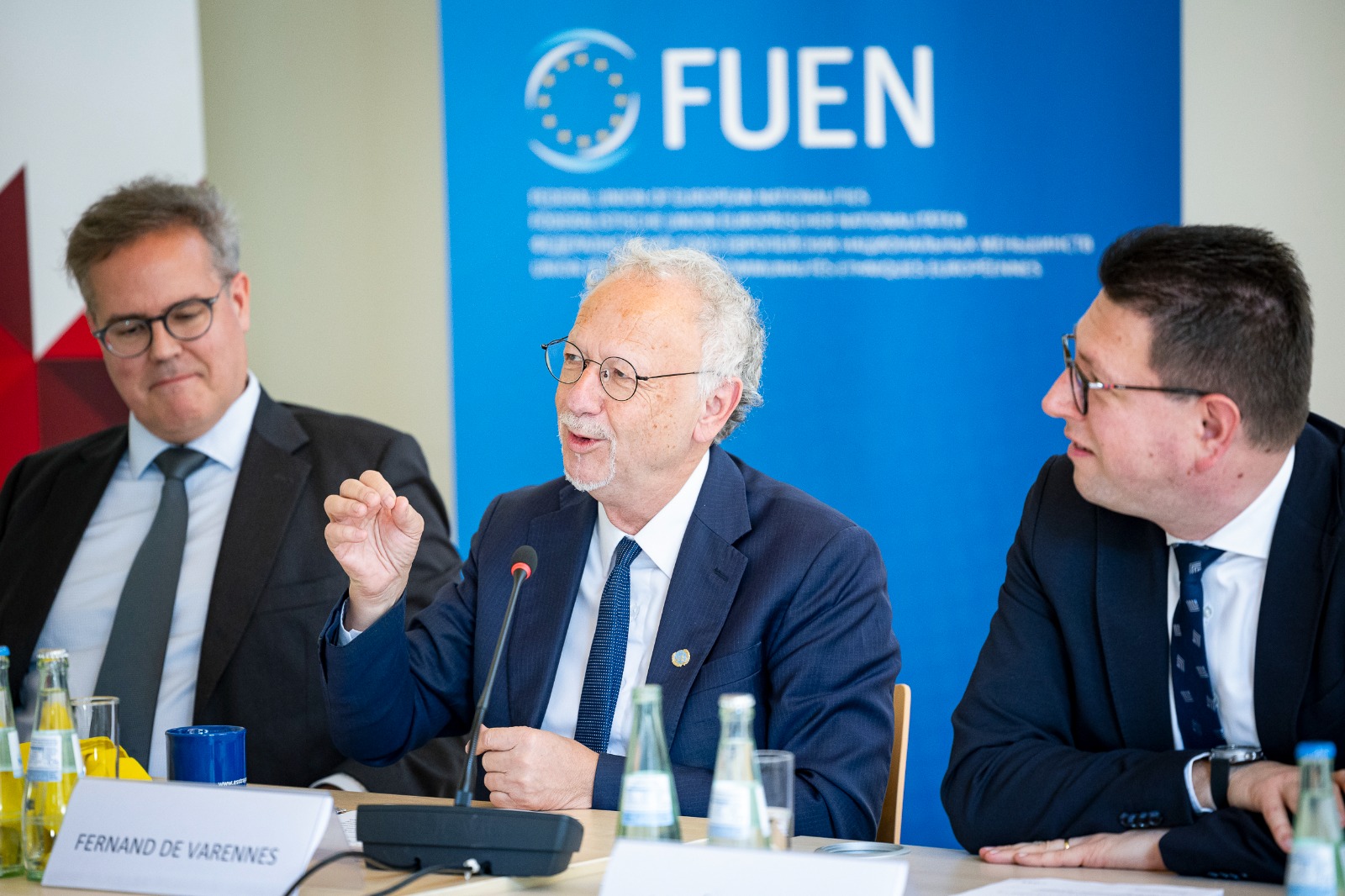
The possibilities in the framework of international organisations such as the UN, the EU, the Council of Europe, OECD and OSCE were discussed at the event, as well as the idea of constituting a permanent body to foster collaboration between the researchers and minority organisations.
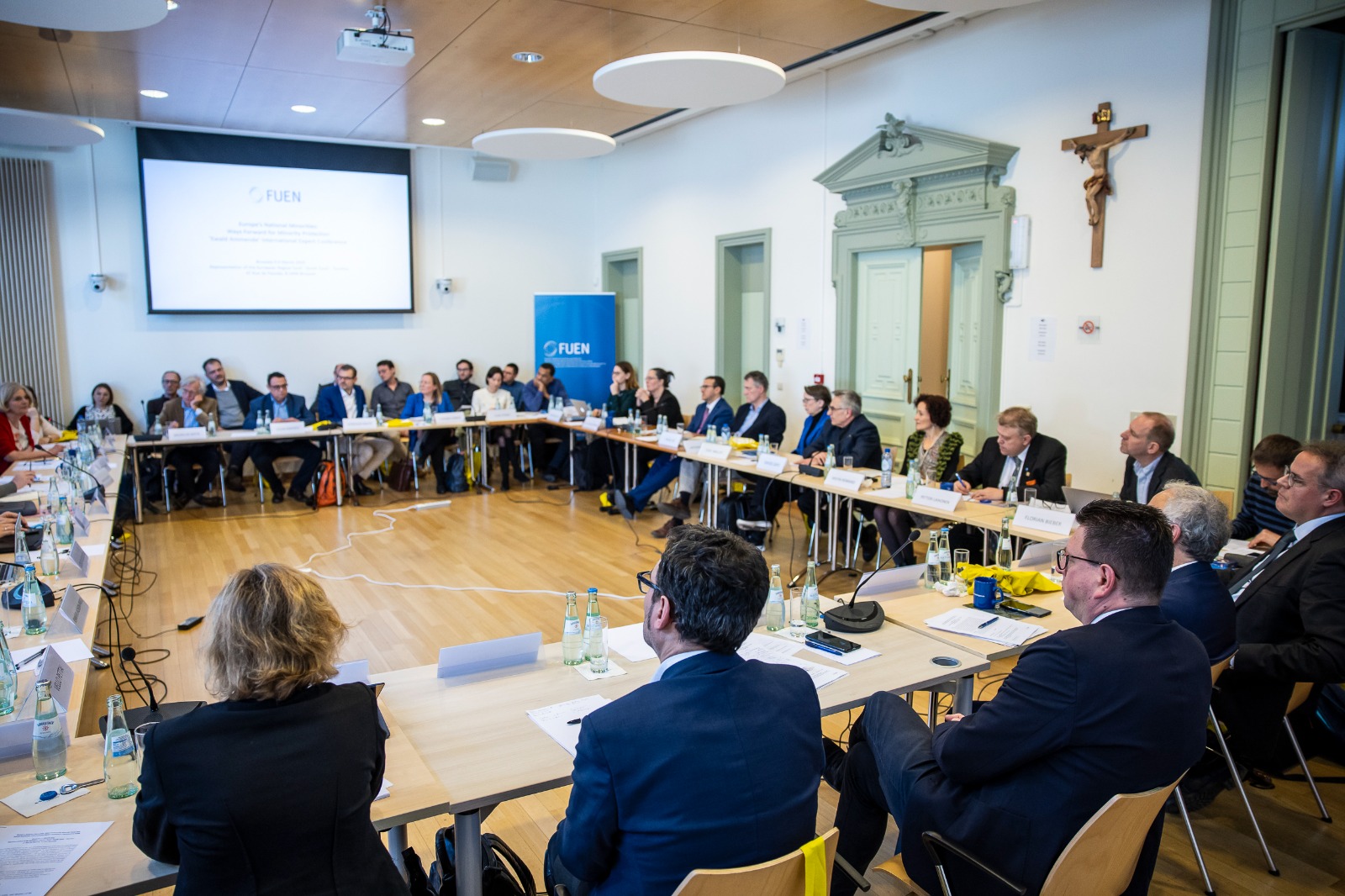
COMMUNIQUÉ DE PRESSE
- FUEN wishes you a peaceful Christmas season, restful days and a bright, hopeful start to the new year!
- FUEN calls on the EU to act over systematic ethnic-based land confiscations in Slovakia
- Women of Minorities conference in Budapest calls for structural change to ensure equal political participation of minority women
- FUEN President Olivia Schubert at UN Forum on Minority Issues in Geneva
- "Laboratory of Peace": 28th Seminar of Slavic Minorities held in European Capital of Culture Gorica/Gorizia
- Equality in Political Participation and Representation: Third “Women of Minorities” Conference to Be Held in Budapest
- FUEN Working Group on Education discusses challenges and future of minority schooling in Europe
- 28th Seminar of Slavic Minorities in Europe to take place in Gorica/Gorizia, Italy
- Olivia Schubert in her first interview as FUEN President
- FUEN Assembly of Delegates elects new leadership – Olivia Schubert becomes new President














